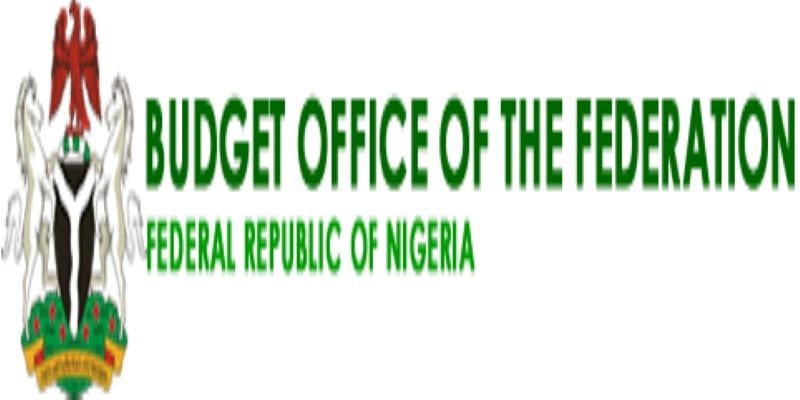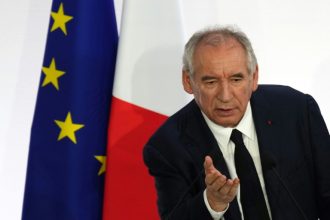Ministries, Departments, and Agencies utilised only 25 per cent of the N4.25tn allocated for capital expenditure in the 2024 fiscal year.
A report by the Budget Office of the Federation for the third quarter of 2024 revealed that despite N4.25tn being released and cash-backed for capital projects, only N1.05tn were effectively utilised by September 30, 2024.
“A total of N4,253.11 billion was released to MDAs and cash-backed for their 2024 capital projects and programmes during the period. Available fiscal data revealed that only N1,053.99 billion of the total amounts released and cash-backed was utilised by MDAs as at 30th September, 2024,” the report read.”
Further checks by Saturday PUNCH showed that no amount was utilised for the 2024 capital budget in the first quarter and only N158.4bn was utilised in the second quarter of last year.
The new report by the budget office details how capital expenditure, which was set at N13.77tn in the 2024 budget—39.29 per cent of total expenditure—continues to underperform, with MDAs failing to utilise the funds as expected.
While the government has been focused on key infrastructure projects in sectors such as roads, power, housing, and rail, the underperformance of the capital budget raises doubts over the achievement of these development goals.
Capital funds were released in tranches to MDAs based on the availability of resources and government priorities.
In the third quarter of 2024, the first tranche amounted to N615.45bn, the second to N237.30bn, and the third to N6.25bn, with an additional N610.10bn released as Service-Wide AIEs (Authority to Incur Expenditure).
Despite these significant releases, the report found that MDAs had utilised only N1.05tn, which represents 71 per cent of the total cash-backed funds for only the third quarter, but 25 per cent for the three quarters.
A closer look at the performance of individual MDAs revealed varying degrees of success in fund utilisation.
Thirty (68.18 per cent) of the MDAs managed to utilise more than the average rate of 52.79 per cent, with 80 per cent of these MDAs achieving utilisation rates above 70 per cent.
However, 31.82 per cent of MDAs underperformed, with some using less than 50 per cent of their allocated funds, and others failing to begin utilisation altogether.
Sunday PUNCH observed that the Federal Government allocated N35.06tn for the 2024 fiscal year, comprising N11.27tn (32.15 per cent) for Recurrent (Non-Debt) expenditure, N8.27tn (23.59 per cent) for Debt Service, N1.74tn (4.97 per cent) for Statutory Transfers, and N13.77tn (39.29 per cent) for Capital Expenditure.
The prorated quarterly expenditure outlay for 2024 was N8.76tn, but actual expenditure for the third quarter amounted to N7.64tn, N1.12tn (12.77 per cent) lower than the projected amount.
“Actual expenditure amounted to N7,644.68 billion in the third quarter of 2024. This was lower than the quarterly budget projection for the year by N1,119.20 billion (12.77 per cent),” the report read.
This shortfall indicates that the government has not been able to meet its expenditure targets, with significant implications for fiscal policy.
The report also highlighted that the government has continued to prioritise the provision of critical infrastructure, with a particular focus on the roads, power, housing, rail, and aviation sectors, as well as security.
However, the slow utilisation of capital funds has undermined these efforts, as the timely delivery of infrastructure projects is crucial for the country’s development.
The funds that have been allocated for capital expenditure remain largely untapped, raising questions about the efficiency of fund disbursement and the ability of MDAs to manage the resources effectively.
Earlier in the week, local contractors under the All Indigenous Contractors Association of Nigeria staged a protest at the Headquarters of the Ministry of Finance in Abuja to demand payment for capital projects executed in 2024, amounting to about N4tn.
The report by the budget office further noted that Nigeria’s fiscal deficit had risen to N7.05tn by the third quarter, exceeding the projected figure for the period.
Sunday PUNCH gathered that the deficit has been financed entirely through domestic borrowing, compounding the country’s debt burden.
The rising deficit and underutilisation of capital funds are indicative of the broader fiscal challenges facing the government, as it continues to rely on borrowing to bridge the gap between revenue and expenditure.
Following the low performance of the capital budget spending, the Senate in June 2025 extended the implementation of the capital component of the 2024 budget to December 31, 2025, for the second time.
During the plenary following the amendment of the appropriation bill requesting an extension, the Deputy Senate President, Barau Jibrin, who presided over the plenary, announced the extension of the appropriation bill following its first, second and third reading expeditious passage.
Chairman of the Senate Committee on Appropriation, Olamilekan Adeola, led the debate during the plenary.
Adeola, the senator representing Ogun West Senatorial District, explained that the extension was required to allow the federal government to complete ongoing projects captured in the budgets.
He also claimed that the Nigerian government does not have enough resources to capture the expenditures proposed in the budget.
The appropriations committee chairman, therefore, urged his colleagues to support the extension of the 2024 budget in order to avoid abandoned projects of the federal government in different parts of the country.
The capital component of the 2024 budget was initially moved from December 31, 2024, to June 30, 2025, following a request by President Bola Tinubu.
The President’s justification at the time was to enable the executive arm to complete ongoing capital projects and optimise budgetary allocations. That extension was granted after extensive debate and consideration by both chambers of the National Assembly.
However, as the June 30, 2025, deadline approached, it became evident that several critical projects funded under the 2024 budget had not been completed, prompting a fresh extension.
With the new deadline of 31 December 2025, Nigeria is now operating two budgets within a single fiscal year: the 2024 budget, which is still being implemented and the 2025 budget, which has already passed and is currently in force.
As of the time it was extended in 2024, some critics argued that the extension reflects weak execution capacity within government Ministries, Departments, and Agencies, while supporters of the move believed it ensures value for money and the completion of critical infrastructure projects that would have otherwise been abandoned.









